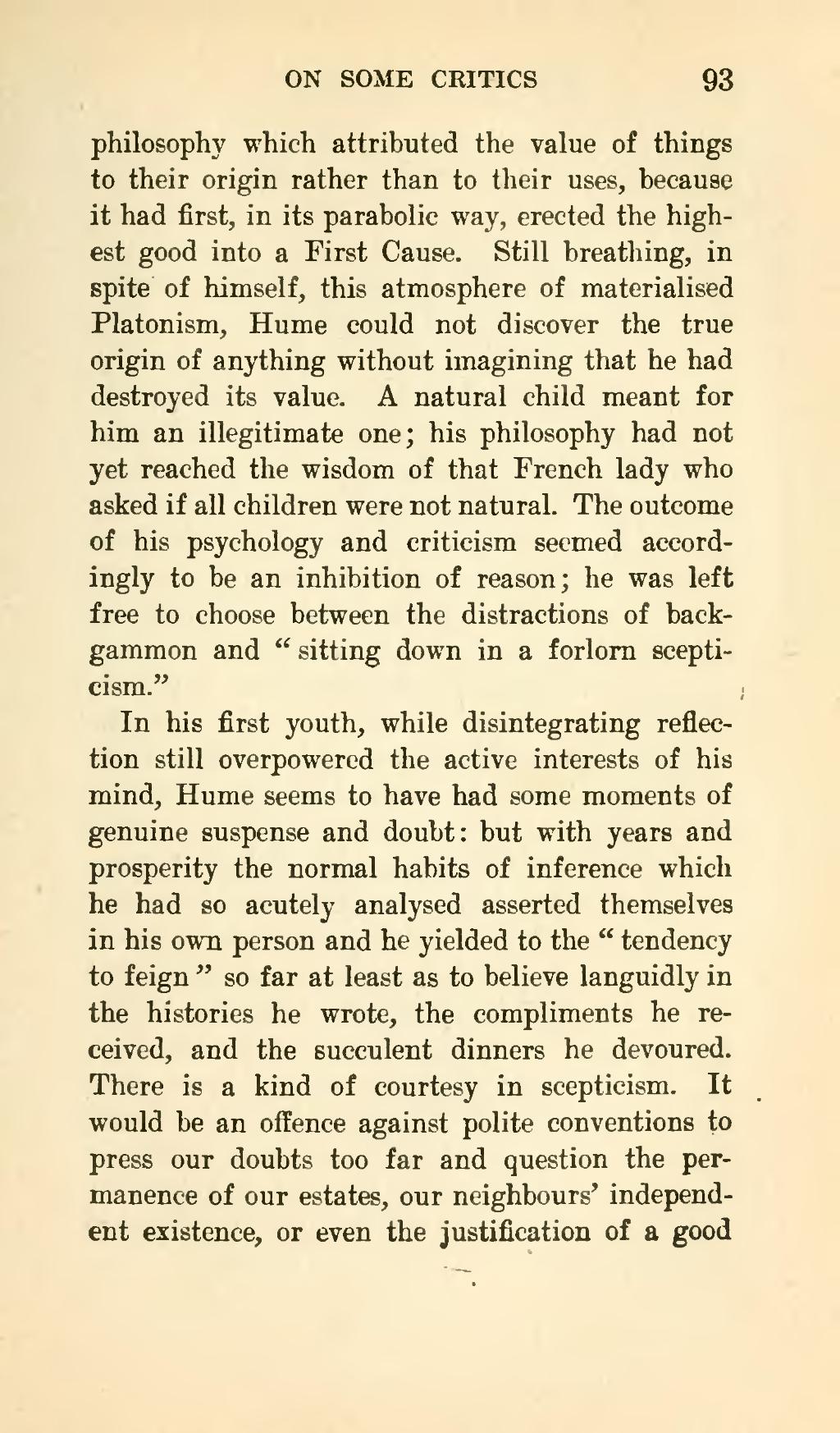philosophy which attributed the value of things to their origin rather than to their uses, because it had first, in its parabolic way, erected the highest good into a First Cause. Still breathing, in spite of himself, this atmosphere of materialised Platonism, Hume could not discover the true origin of anything without imagining that he had destroyed its value. A natural child meant for him an illegitimate one; his philosophy had not yet reached the wisdom of that French lady who asked if all children were not natural. The outcome of his psychology and criticism seemed accordingly to be an inhibition of reason; he was left free to choose between the distractions of backgammon and “sitting down in a forlorn scepticism.”
In his first youth, while disintegrating reflection still overpowered the active interests of his mind, Hume seems to have had some moments of genuine suspense and doubt: but with years and prosperity the normal habits of inference which he had so acutely analysed asserted themselves in his own person and he yielded to the “tendency to feign” so far at least as to believe languidly in the histories he wrote, the compliments he received, and the succulent dinners he devoured. There is a kind of courtesy in scepticism. It would be an offence against polite conventions to press our doubts too far and question the permanence of our estates, our neighbours’ independent existence, or even the justification of a good
